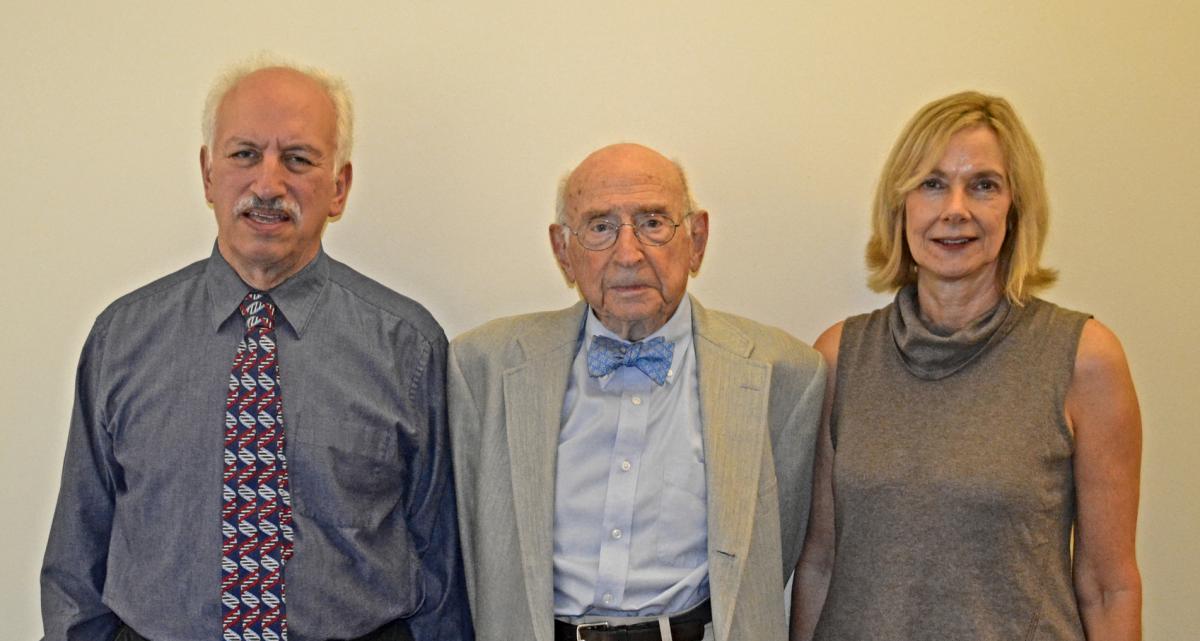
The Department of Health Care Policy has created and endowed two new professorships. The S. James Adelstein and Daniel C. Tosteson professorships mark the seventh and eighth endowed professorships created by the department since its inception in 1988. The S. James Adelstein professorship was endowed upon professor of health care policy (biostatistics) Sharon-Lise Normand, PhD. Alan Zaslavsky, PhD, professor of health care policy (statistics) is the incumbent of the Daniel C. Tosteson professorship.
Sharon-Lise Normand’s research focuses on the development of statistical methods for health services and regulatory policy research, primarily using Bayesian approaches, including assessment of quality of care, methods for causal inference, provider profiling, diffusion of medical technologies, and regulatory science. She has developed a long line of research on methods for the analysis of patterns of treatment and quality of care for patients with cardiovascular disease and with mental disorders in particular.
Normand has developed analytical approaches for comparing hospitals and physicians using outcomes and process-based measures. She served as director of Mass-DAC for 15 years, the data-coordinating center responsible for collecting, analyzing, and reporting on the quality of care for adults undergoing a cardiac procedure in any non-federal hospital in Massachusetts. Normand and colleagues annually reported on hospital and physician performance using prospectively collected medical-record data. She is also the director of the Medical Device Epidemiology Network (MDEpiNet) Methodology Center, which is a public-private partnership aimed at medical device evaluation. Her focus is on the development of statistical approaches to active medical device surveillance, valid inferences from distributed networks, and the improvement of causal inference in the presence of high dimensional data. On the mental health side, Normand is co-leading an NIMH-funded study to estimate the value of publicly funded mental health care for patients with serious mental illness as well as co-leading an NIMHD-funded grant that seeks to improve minority health by monitoring Medicaid quality, disparities, and value. Dr. Normand also leads an NIGMS-funded grant to develop Bayesian methods in comparative effectiveness research using observational data. Normand earned her Bachelor of Science and Masters of Science degrees in statistics from the University of Western Ontario and her PhD in biostatistics from the University of Toronto. She is a fellow of the American Statistical Association, a fellow of the American College of Cardiology, and an Associate Member of the Society of Thoracic Surgeons. She served as the 2010 President of the Eastern North American Region of the International Biometrics Society, was inaugural co-chair of the PCORI Methodology Committee, co-chairs a Committee on National Statistics/National Academy of Sciences panel reviewing the Safety Measurement System of the Compliance, Safety, Accountability program run by the Federal Motor Carrier Safety Administration, which penalizes truck carriers based on their scores from vehicle inspection data, and was a member of the National Academy of Sciences Committee of Applied and Theoretical Statistics (CATS) focusing on the intersections of statistics and computer science for big data. Normand was recently appointed chair of the National Evaluation System for health Technology Coordinating Center’s Methods Subcommittee to develop methods standards to conduct efficient, timely, and high-quality real-world evidence for medical devices.
Alan Zaslavsky’s methodological research interests include surveys, census methodology, microsimulation models, missing data, hierarchical modeling, small-area estimation, and applied Bayesian methodology. His health services research focuses primarily on developing methodology for quality measurement of health plans and providers and understanding the implications of these quality measurements.
An important part of Zaslavsky’s work concerns the development, implementation, and analysis of the Consumer Assessments of Healthcare Providers and Systems (CAHPS) survey, a comprehensive program involving development of survey instruments for eliciting enrollee reports and ratings of their health plans, hospitals, provider groups and similar units and the care they receive through them, a standard analysis package, and methods for reporting results to potential enrollees and purchasers. As a statistical leader in the implementation of the CAHPS survey for the Medicare population, he has studied individual characteristics affecting responses to the survey, the main dimensions of quality measured by the survey, the contributions of the health plan and geographical location to CAHPS-measured quality, comparisons of traditional Medicare to Medicare Advantage and Medicare Accountable Care Organizations, and risk selection among health plans.
Zaslavsky collaborates with McNeil Family Professor of Health Care Policy Ronald C. Kessler, PhD, on analyses for the World Mental Health Surveys and for the Army STARRS study of suicides in the armed forces. Zaslavsky's interests also include methodology for measuring racial and ethnic disparities in care and determining their causes, quality measurement for pediatric hospital care, and national opinion research on health policy issues.
Zaslavsky earned his Bachelor of Arts from Harvard College, his master’s degree in statistics and computer science from Northeastern University, and his PhD in applied mathematics, with a specialty in statistics, from the Massachusetts Institute of Technology. He is also a fellow of the American Statistical Association, an elected member of the International Statistical Institute, and a national associate of the National Academy of Sciences. He has served on numerous panels on decennial census methodology, small-area estimation, measurement of race for health and health services research, and healthcare quality reporting for the Institute of Medicine (now National Academy of Medicine) and the Committee on National Statistics (CNSTAT) of the National Academy of Sciences, on which he has also served.
S. James Adelstein, PhD, MD, is the Paul C. Cabot Professor of Medical Biophysics, Emeritus at Harvard Medical School, and past President of the Vallee Foundation. He received his medical degree from Harvard Medical School and his PhD in biophysics from the Massachusetts Institute of Technology. His research has focused on the biophysical effects of highly ionizing radiation emitted by radionuclides; microdosimetry of internal emitters; and therapeutic applications of radionuclides in tumor models. Daniel C. Tosteson, MD, also received his medical degree from Harvard Medical School and served as the Caroline Shields Walker Professor of Cell Biology, Dean of the Harvard Medical School, and the 46th President of the American Physiological Society. Tosteson passed away in 2009.